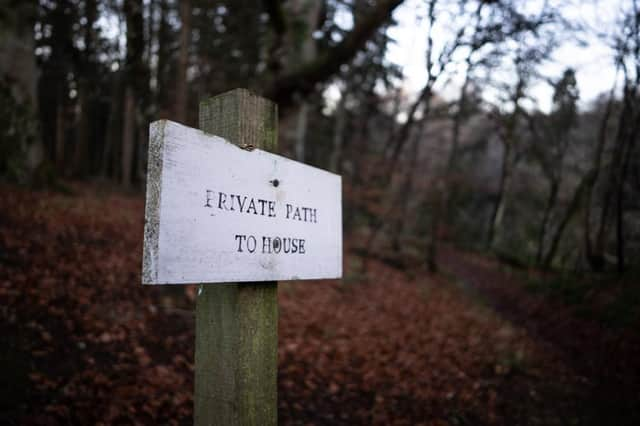Trespassing laws: is it illegal to trespass in Scotland and what are the freedom to roam rules?


Scotland’s trespassing laws have long left those trying to interpret them scratching their heads, whether you’re a property owner concerned about a neighbour encroaching on your property, or a hiker confused over the freedom to roam rules.
Confusion stems from a widely believed myth that Scotland doesn’t in fact have it’s own set of trespassing laws, which isn’t the case.
Advertisement
Hide AdAdvertisement
Hide AdWe talked with lawyer Stephanie Spencer of Thompsons Solicitors Scotland who shined truth on the country’s misunderstood trespassing laws.
Does Scotland have its own trespassing laws?
Yes, The Trespass (Scotland) Act 1865 was established in order to better prevent trespass.
What is the definition of trespassing in the Trespass Act?
“Trespass is considered a civil wrong but can also sometimes be considered a criminal offence,” explains Spencer.
“A description of trespass in Scots Law is ‘the process of entering another person’s property or land without permission’.
“This can also occur when an individual enters another property or piece of land with permission, but then subsequently that permission is withdrawn and the individual involved refuses to leave. For example, a person who walks into a shop, causes a commotion but refuses to leave, despite requests to do so from the owner of the shop.”
"Under common law the landowner in Scotland is entitled to re-entry of his land as they require. If he or she asks an unwanted party on his or her property or land to leave and they refuse, taking up occupancy, it becomes a criminal offence under the 1865 Act, for which a court order to remove them may be required.”
Can I forcibly remove someone from my property?
No.
Spencer explains that if an “owner forces the trespasser to leave by forcibly removing them, they may be finding themselves committing a criminal offence.”
How did the Land Reform Act 2003 impact trespass laws?
The Land Reform Act 2003 was introduced to improve “general rights of access, servitudes and encampment on private land”, explains Spencer.
Advertisement
Hide AdAdvertisement
Hide AdThe act established universal access rights to most land which people have the rights. If these rules are exercised properly “respecting other people’s privacy, safety and respecting the environment around them” then it is not considered trespass, highlights Spencer.
Who/what can break trespass laws?
Spencer explains that the encroachment of a neighbours hedge on to another property would not constitute trespass.
“Trespass is committed by people or animals and is different from encroachment which is committed by things.
"To be trespassing, the presence on the land must be temporary.”
Are there exceptions to the trespass laws?
"There are of course, exceptions,” notes Spencer.
“Entering a piece of land or property is not considered trespassing if the following defences can be shown: consent; an emergency or judicial warrant which must be signed, dated and specify the address of the premises.”
How do freedom to roam laws work?
Freedom to roam allows the right to access most land in Scotland for recreational purposes whether it be hiking or walking the dog.
The legislation is open to interpretation, however, often leading to disputes over what constitutes trespassing.
Spencer explains: “Land where the right to roam cannot be exercised and is considered trespassing, includes lands where there are buildings, a location that provides a person with shelter such as a tent, gardens around houses, that allow for a degree of privacy, school playgrounds, etc.
“It should be noted that landowners are prohibited from discouraging others to exercise their public access rights by putting up signs or fences.”